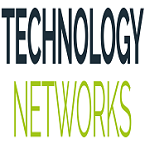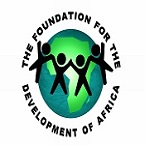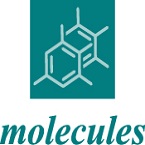Theme: Nanomaterials for Sustainable Development: Innovations and Applications
Nanomaterials 2024
Conference Series LLC LTD invites all the participants from all over the world to attend “37th International Conference on Nanomaterials and Nanotechnology” in London, UK during March 14-15, 2024 which includes prompt keynote presentations, Oral talks, Poster presentations and Exhibitions.
Nanomaterials are the elements which has at least one spatial measurement in the size range of 1 to 100 manometers. Nanomaterials can be produced with various modulation dimensionalities. It can be distinct nanostructure such as quantum dots, nanocrystals, atomic clusters, nanotubes and nanowires, while gathering of nanostructures includes arrays, assemblies, and super lattices of distinct nanostructure. The chemical and physical properties of nanomaterials can considerably differ from the bulk materials or atomic-molecular of the same composition. Uniqueness of structural features, dynamics, chemistry, response and energetics of nanostructures constitutes the base of nanoscience. There are numerous areas of concern in the nanomaterials market which are predictable to be explored in the approaching years, for instance, nanoparticles or nanocrystals of metals and semiconductors, nanowires, nanobiological systems and nanotube. We are delighted to invite you all to join & register for the international conference on “37th International Conference on Nanomaterials & Nanotechnology” which is going to be organized during February 15-16, 2024 Rome, Italy.
Importance & Scope:
The U.S. forms the largest market for the nanomaterials owing to large application use of nanotubes in various industries. Electrical and electronics, pharmaceutical and chemical products are the major application segments in North America market. Europe also held a significant market share in the nanomaterials market. Decrease in price of nanomaterials due to increase in mass production has led to robust growth of nanomaterials in these regions. Asia Pacific is expected to witness remarkable growth in the projected period. Increasing government funding and support, rising environmental consciousness, and rising demand for specialty materials is expected to boost the growth of nanomaterials market in the foreseeable period. Nanomaterials are regulated under REACH and CLP regulation in the European market while U.S. FDA regulates nanomaterials for the American market. Nanoscale materials engineering will have an increasingly important impact on a number of sectors, including biotechnology, electronics, energy, and industrial products Nano-sized ceramic powder market is likely to grow with a healthy growth rate of about 10% per year in the next five years. MWNT filled polymers are successful commercial products in automotive applications. Nanocomposites have found niche applications such as automotive (under the hood and exterior) and beverage packaging. More companies will enter the nanomaterials market. At the same time, there will be increasing number of business relations such as technology licensing and joint marketing to achieve faster commercialization of the new products the research and development funding for nanotechnology and nanomaterials will continue to increase in this decade. The global nanomaterials market size was estimated at USD 8.0 billion in 2020 and is expected to expand at a Compound Annual Growth Rate (CAGR) of 14.1% from 2021 to 2028.
Why to Attend?
With members from around the world focused on learning about Nanomaterials & Nanotechnology, this is your single best opportunity to reach the largest assemblage of participants from all over the globe. Conduct demonstrations, distribute information, meet with the current and potential customers, make a splash with a new product line and receive name recognition at this 2-day event.
Target Audience:
-
Nanomaterials and Nanotechnology Students, Scientists
-
Nanomaterials and Nanotechnology Researchers
-
Nanomaterials and Nanotechnology Faculty
-
Nanomaterials and Nanotechnology Colleges
-
Nanomaterials and Nanotechnology Associations and Societies
-
Business Entrepreneurs
-
Training Institutes
-
Manufacturing Medical Devices Companies
Track 1: Nanoparticles
Nanoparticles are particles between 1 and 100 nanometres in size. In nanotechnology, a particle is defined as a small object that behaves as a whole unit with respect to its transport and properties. Particles are further classified according to diameter. Ultrafine particles are the same as nanoparticles and between 1 and 100 nanometres in size, fine particles are sized between 100 and 2,500 nanometres, and coarse particles cover a range between 2,500 and 10,000 nanometres.
- Mechanical properties
- Core-Shell nanoparticles
- Composite materials
- Micro spheres
- Ceramic polymers
- Glass ceramics
Track 2: Nano Electronic Devices
Nano electronics refer to the use of nanotechnology in components. The term covers a diverse set of devices and materials, with the common characteristic that they are so small that inter-atomic interactions and quantum mechanical properties need to be studied extensively.
- Molecular electronics
- Nano radios
- Optoelectronic devices
- Nano fabrications
- Nonionic
Track 3: Advanced Nanomaterial’s
Nanomaterials are characterized as materials with no less than one outside measurement in the size extent from around 1-100 nanometres. Nanoparticles are items with each of the three outside measurements at the nanoscale. Nanoparticles that are normally happening (e.g., volcanic powder, ash from woodland fires) or are the accidental side effects of ignition procedures (e.g., welding, diesel motors) are generally physically and synthetically heterogeneous and frequently termed ultrafine particles. Built nanoparticles are deliberately delivered and planned with particular properties identified with shape, size, surface properties and science. These properties are reflected in mist concentrates, colloids, or powders. Regularly, the conduct of nanomaterials might depend more on surface region than molecule arrangement itself. World interest for nanomaterials will rise more than more than two times to $5.5 billion in 2016. Nanotubes, nanoclays and quantum dabs will be the quickest developing sorts. The vitality stockpiling and era and development markets will offer the best development prospects. China, India and the US will lead picks up among countries. This study dissects the $2 billion world nanomaterial industry. It presents recorded interest information for the years 2001, 2006 and 2011, and gauges for 2016 and 2021 by material (e.g., metal oxides, chemicals and polymers, metals, nanotubes), market (e.g., social insurance, gadgets, vitality era and capacity, development), and world area and for 15 nations.
- Inorganic/Organic nanomaterials
- Nanotubes, nanoparticles and nanowires
- Nanomaterials for chemical and catalytic applications
- Functional nanomaterials and nanocomposites
- Porous nanomaterials and mesoporous materials
- Self-assembly, supra and nano-molecular systems and materials
Track 4: Nanotechnology Applications
Nanomaterials have a totally wide variety of programs inside the discipline of numerous technologies. The diverse fields of engineering and in conjunction with the drugs and biology have a totally large impact of nanotechnology inside the improvement. At gift there are 21 new studies initiatives carried on the sector of electronics and 22 in fabric which can be in process. It’s far anticipated that 75 new researchers going in this discipline with an annual quantity of $15,000 million spent on Nano-optics studies in 2014-2015. The applications of the nanomaterial's in numerous fields consist of electronics, renewable and sustainable electricity, sensors and actuators pc applications communique networks and Nano magnetics in conjunction with the photo catalysis and plenty of greater.
- Nanoscale communication & networks
- Ter-hertz application
- Photocatalysis
- Communication
- Chemical & Pharmaceutical applications
- Biology & Medicine
Track 5: Nanomaterials Safety and Regulations
The development of Nanomaterials has made the whole international deal with the benefits of the fast developing discipline of Nanomaterial’s and nanotechnology. it is envisioned that over 1500 manufactured- identified nanotech products are publicly to be had, with the brand new ones hitting the marketplace every week. The considerable range of ability products and programs offers nanotechnology its enormous boom prospects. The global nanotechnology industry will increase to reach Americas seventy five. Eight billion with the useful resource of 2021 making each sector of era and generation listen in making the nanotechnology and Nanomaterial’s play a vital characteristic in their future development.
- Measurement of health risk
- Nanotoxicology
- Regulation and ethical impacts
- Risk assessment and management
- Exposure scenarios
Track 6: Nanoscale Materials
Nanoscale materials are a broadly defined set of substances that have at least one critical dimension less than 100 nanometres and possess unique optical, magnetic, or electrical properties. Ultrafine particulate matter is a well-known example of Nanoscale particles found in the environment.
- Graphene traps
- Nano wires
- Carbon nanotubes and fullerences
- Magnetic nano particles
- Novel drugs to nano drugs
Track 7: Applications of Nanomaterials
Nanomaterials (Nanocrystalline materials) are substances possessing grain sizes on the order of a billionth of a meter. They manifest extraordinarily charming and beneficial properties, which can be exploited for a ramification of structural and non-structural packages. seeing that Nanomaterial’s own unique, beneficial chemical, bodily, and mechanical houses, they may be used for an extensive form of programs, like next era laptop Chips, Kinetic Energy (KE) Penetrators with more advantageous Lethality, better Insulation materials, Phosphors for excessive-Definition TV, Low-cost Flat-Panel displays, more difficult and more difficult cutting tools, elimination of pollution, excessive strength Density Batteries, excessive-power Magnets, high-Sensitivity Sensors, motors with greater gas efficiency, Aerospace additives with superior performance characteristics, higher and destiny weapons platforms, Longer-Lasting Satellites, Longer-Lasting medical Implants, Ductile, Machinable Ceramics, huge Electro chromic show devices.
- Energy applications of nanomaterials
- Nanomechanics
- Catalysis by gold nanoparticles
- Nanorods
- Photonic crystals and plasmon waveguides
- Carbon nanotube emitters
Track 8: Nanotech Products
The consumer international is exploding with “nanotechnology superior” merchandise. purchaser products is an area in which the professionals are saying the maximum instantaneous nanotechnology influences may be made and diagnosed with the aid of the general public of human beings within the global. Presently there are various products in the marketplace which can be the end result of nanotechnology. The sector around us is full of packages that nanotechnology makes feasible. Nanotechnology is influencing the improvement of a wide style of very various fields; among these are electronics, biotechnology and consumer applications, starting from tennis balls to bandages to palm pilots, nanotechnology are making a big effect on the jobs we work at and the products that we enjoy.
- Nanotechnology products for air quality
- Nanotechnology products for batteries
- Nanotechnology products for chemical sensors
- Nanotechnology products for cleaning products
- Nanotechnology products for electronics
Track 9: Nano Devices and Systems
The rapid boom of the Nano devices is main the arena thru the roadways of development in various segments of technological know-how and generation. The Nano gadgets and Nanostructures have introduced a super exchange of the human race with its Nano way of life gadgets. The studies entails in clever sensors and smart delivery structures, modelling and simulation alongside the biologically inspired gadgets that are predicted to move at an excellent growth of 34% CAGR and the predicted boom of the Nano switches and Optical-biosensors is up to $58. 9% billion growth through the stop of 2018 through registering a healthy CAGR of 20.7% around the world making the world's pay attention the research areas of Nanomaterials and Nanotechnology.
- Nano surface engineering
- System integration, NEMS
- Modelling and simulation of nanomaterials & nano devices
- Nanoscale process engineering
- Nano device fabrication
Track 10: Nano Medical Devices
Nanoelectronics are so small that several hundred such devices would fit in the period at the end of this sentence. Laboratory versions made of silicon nanowires can detect disease biomarkers and even single virus cells, or record heart cells as they beat. Liber’s team also has integrated Nano electronics into living tissues in three dimensions—creating a “cyborg tissue.” One obstacle to the practical, long-term use of these devices is that they typically fall apart within weeks or days when implanted. In the current study, the researchers set out to make them much more stable.
- Nano robots
- Nano chips and nano implants
- Cell repair
- Tissue engineering
- Prosthesis
Track 11: Nanozymes
Nanozymes are nanomaterials with enzyme-like characteristics. They have been widely explored for various applications, such as biosensing, bioimaging, tumor diagnosis and therapy, antibiofouling. In 2006, nanoceria was used for preventing retinal degeneration induced by intracellular peroxides. In 2007, Xiyun Yan and co-workers reported that ferromagnetic nanoparticles possessed intrinsic peroxidase-like activity.
- Synzyme
- Metilo proteins
- Cyclodextrin
- Abzymes
- Bio immetrics
Track 12: Biomedical Nanomaterial’s
The science and innovation of Nanomaterials has made awesome energy and desires in the most recent couple of years. The following decade is liable to witness significant steps in the arrangement, characterization and abuse of Nanoparticles, Nanowires, Nanotubes, Nanorods, Nano crystals, Nano units and their congregations.
- Regenerative nanomedicine
- Nanotechnology for improving biocompatibility
- Nano-Bio interactions
- Tissue engineering by nanotechnology
- Nano-Bio interfaces
- Nanostructured materials for artificial organs
Track 13: Nanostructure
A nanostructure is a structure of intermediate size between microscopic and molecular structures. Nanostructure detail is microstructure at nanoscale. In describing nanostructures it is necessary to differentiate between the numbers of dimensions on the nanoscale. Nano textured surfaces have one dimension on the nanoscale, i.e., only the thickness of the surface of an object is between 0.1 and 100 nm.
- Nano flower
- Quantum hetero structures
- Nano ribbon
- Nano tip
- Nano platelet
- Nano flake
Track 14: Materiomics
Materiomics is defined as the holistic study of material systems. Materiomics examines links between physiochemical material properties and material characteristics and function. The focus of Materiomics is system functionality and behaviour, rather than a piecewise collection of properties, a paradigm similar to systems biology. While typically applied to complex biological systems and biomaterials, Materiomics is equally applicable to non-biological systems. Materiomics investigates the material properties of natural and synthetic materials by examining fundamental links between processes, structures and properties at multiple scales, from Nano to macro, by using systematic experimental, theoretical or computational methods.
- Bio-inert materials
- Anti-encapsulation
- Pro-fixation
- Bio-metromics
- Cell material interactions
Track 15: Characterization and Properties of Nanomaterials
The organization of nanoparticles in a thin film form is often necessary to render these functional and operational. Two important chemical methods: (a) high-temperature thermal decomposition and (b) liquid-liquid interface reaction, suitable for preparing films of many metal and metal oxide nanoparticles.
- Thermal properties
- Magnetic properties
- Chemical characterization
- Physical properties of nanomaterials
- Optical properties
Track 16: Nanocosmetics
Nanocosmetics refer to cosmetic products that contain nanoparticles. These nanoparticles are extremely small, usually ranging from 1 to 100 nanometers in size. They are used in cosmetics for various purposes, such as enhancing product efficacy, improving texture, and increasing stability. The use of nanotechnology in cosmetics has gained popularity in recent years due to its potential benefits. Nanoparticles can penetrate the skin more effectively than larger particles, allowing for better absorption of active ingredients. This can lead to improved product performance and targeted delivery of specific benefits.
- Liposomes
- Nanocapsules
- Nanocrystals
- Cubosomes
Nanotechnology is the improvement and engineering of devices so small that they are measured on a molecular scale. This developing field involves scientists from many different disciplines, including physicists, chemists, engineers, information technologists and material researchers as well as biologists. Nanotechnology is being applied to almost every field imaginable, including electronics, magnetics, information technology, materials development and biomedicine. There are numerous areas of concern in the nanomaterials market which are expectable to be explored in the approaching years, for instance, nanoparticles of metals and semiconductors, nanowires, nanobiological systems and nanotubes. We are delighted to invite you all to join & register for the international conference on “37th International Conference on Nanomaterials and Nanotechnology” which is going to be organized during February 13-14, 2024 Barcelona, Spain.
Importance & Scope:
The U.S. forms the largest market for the nanomaterials owing to large application use of nanotubes in various industries. Electrical and electronics, pharmaceutical, and chemical products are the major application segments in North America market. Europe also held a significant market share in the nanomaterials market. Decrease in price of nanomaterials due to increase in mass production has led to robust growth of nanomaterials in these regions. Asia Pacific is expected to witness remarkable growth in the projected period. Increasing government funding and support, rising environmental consciousness, and rising demand for specialty materials is expected to boost the growth of nanomaterials market in the foreseeable period. Nanomaterials are regulated under REACH and CLP regulation in the European market while U.S. FDA regulates nanomaterials for the American market. Nanoscale materials engineering will have an increasingly important impact on a number of sectors, including biotechnology, electronics, energy, and industrial products Nano-sized ceramic powder market is likely to grow with a healthy growth rate of about 10% per year in the next five years. MWNT filled polymers are successful commercial products in automotive applications. Nanocomposites have found niche applications such as automotive (under the hood and exterior) and beverage packaging. More companies will enter the nanomaterials market. At the same time, there will be increasing number of business relations such as technology licensing and joint marketing to achieve faster commercialization of the new products the research and development funding for nanotechnology and nanomaterials will continue to increase in this decade. The global nanomaterials market size was estimated at USD 8.0 billion in 2020 and is expected to expand at a compound annual growth rate (CAGR) of 14.1% from 2018 to 2028.
Why to attend?
With members from around the world focused on learning about Nanotechnology engineering and Nano medicine this is your single best opportunity to reach the largest assemblage of participants from all over the world. Conduct demonstrations, distribute information, meet with current and potential customers, make a splash with a new product line, and receive name recognition at this 2-day event.
World-renowned speakers, the most recent techniques, tactics, and the newest updates in fields of Nanotechnology and engineering, Medical Nanotechnology, tissue engineering are hallmarks of this conference.
Nanotechnology Market Size:
Emergen Research has published its latest report titled “Nanotechnology Market Size, Share, Trends, by type (Nanomaterials, Nanocomposites, Nano devices, Nano tools) by industry (Food and Agriculture, Healthcare, Information and Technology, Environment, Energy, Cosmetics) and by region, forecast to 2028”.
According to Emergen Research, the global nanotechnology market size was USD 75.80 Billion in 2020 and is expected to reach USD 290.93 Billion in 2028 and register revenue CAGR of 18.3% during the forecast period, 2021-2028.
Market Dynamics:
Nanotechnology is the study and management of matter at the nanoscale, where unique phenomena offer revolutionary applications, with diameters ranging from 1 to 100 nanometres. Passive Nano-structures, active nano-structures, molecular nano-systems, systems of nano-systems are four generations of nanotechnology. Advancements in nanotechnology provide significant benefits in healthcare sector by providing breakthroughs in disease diagnosis and monitoring, implanting and regenerating human tissues, improving drug delivery, and developing biomedical research tools. Researchers can use Nano microscopes to see single molecules and control individual atoms and molecules by moving them around with a small probe. Increasing government emphasis on the use of nanoscience and nanotechnology to develop effective drugs and life-saving medical treatments are some key factors expected to drive revenue growth of the nanotechnology market.
Major Companies in the Market include:
- Fujitsu laboratories, Ltd.
- Bayer Material Science
- Ademtech
- GE Healthcare
- IBM research
- Hewlett-Packard Co.
- Intel
- Altair Nanotechnologies Inc.
- Cypress Semiconductor
- Cortex Biochem
Nanotechnology Budget:
The 2021 Budget supports nanoscale science, engineering and technology R&D at 11 agencies. Another 9 agencies have nanotechnology-related mission interests or regulatory responsibilities. Budget provides $1.5 billion for the nanotechnology, a continued investment in support of the priorities and innovation strategy. The investments in 2016 and 2017 and those proposed for 2022 reflect a renewed emphasis on accelerating the transition from basic R&D to innovations that support national priorities, while maintaining a strong foundation of broad, fundamental research in nanoscience that provides a continuing pipeline of new discoveries that will enable future revolutionary applications.
This conference is focusing on all the major aspects in the fields of Nanotechnology. It would be beneficial for all the students and researchers who ever willing to enter into corporate worlds targeting to the respective fields.
Conference Highlights
- Nanoparticles
- Nano Electronic Devices
- Advanced Nanomaterial’s
- Nanotechnology Applications
- Nanomaterials Safety and Regulations
- Nanoscale Materials
- Applications of Nanomaterials
- Nanotech Products
- Nano Devices and Systems
- Nano Medical Devices
- Nanozymes
- Biomedical Nanomaterial’s
- Nanostructure
- Materiomics
- Characterization and Properties of Nanomaterials
- Nanocosmetics
To share your views and research, please click here to register for the Conference.
To Collaborate Scientific Professionals around the World
| Conference Date | March 14-15, 2024 | ||
| Sponsors & Exhibitors |
|
||
| Speaker Opportunity Closed | |||
| Poster Opportunity Closed | Click Here to View | ||
Useful Links
Special Issues
All accepted abstracts will be published in respective Our International Journals.
- Journal of Nanomaterials & Molecular Nanotechnology
- Journal of Nanomedicine & Nanotechnology
- Journal of Nanomedicine & Biotherapeutic Discovery
Abstracts will be provided with Digital Object Identifier by
























